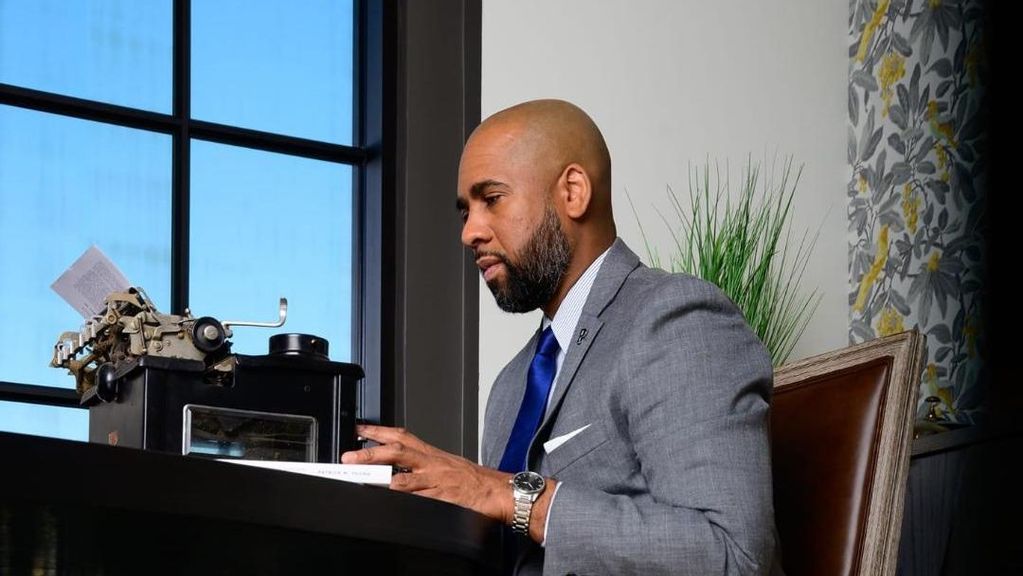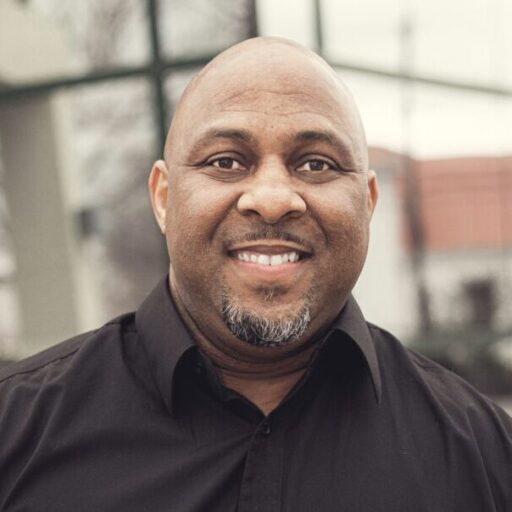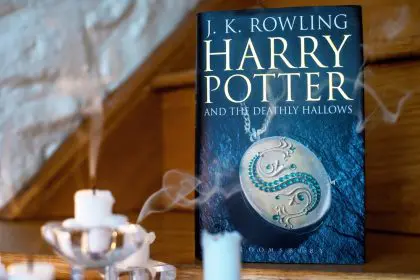
Despite spending 14 years in prison, Patrick Young refused to let that harsh experience be his defining moment. Not only did he find a way out, but he also found a way up. He plans to use his blueprint to help others enjoy economic success following their release from the judicial system.
His book, “A Way Up: Economic Development Post Incarceration,” was released on 2-22-22, a date reflecting his time in jail, as the numbers add up to 10 with 2022 marking his tenth year post-release. Young holds many titles in New Orleans, from fighting gun violence to helping ex-military personnel and former inmates acquire suits for job interviews. He now adds the title author to his ledger and says this won’t be his last book.
Zenger touched base with Young to discuss his book as he opens up about the importance of ownership and much more.
Percy Crawford interviewed Patrick Young for Zenger.
Zenger: Your year seems to be off to a great start. How is everything going?
Young: It’s good, man. The job is moving well, and now I’m just excited about launching this book.
Zenger: What made you decide to write a book?
Young: It’s all God’s time really. I’m launching a book on 2-22-22. If you add those numbers together, that’s 10. This year marks 10 years that I have been released from incarceration. Those numbers also mean alignment. Now is the time for everything to fall into alignment and into place, so I just looked at it as God’s timing.

Zenger: We have the reason you’re releasing this book. What is the meaning behind the title, “A Way Up: Economic Development Post Incarceration?”
Young: The book channels prison and poverty. There is this cycle of people who are in these poverty-stricken neighborhoods: They are constantly in this revolving door, in and out, in and out of prison. If you’re locked up, all you wanna do is get out. In order to be successful, it’s not just about getting out of prison, it’s about getting out of poverty. So, you gotta find a way up, not just a way out. We gotta move the economic threshold for people who are in these environments.
Zenger: Was this an easy process to compile your thoughts and turn it into a book?
Young: No man! Actually, it was a little difficult at first because there isn’t much information on economic development for people who were formally incarcerated, which again … was the push behind it.
The military has a version called “TED” [Transition Economic Development]. If you’re in the military, before you’re discharged, you have to take this course and learn economic development. But when you think of the number of people that are incarcerated and their release, where is that same intentionality around them learning how to build wealth after the situation? It’s almost systematically structured to keep people in a certain subset of society. We have to find a bridge. We gotta find a way to help people move into that higher level, that upper echelon of life.
We have to look at what has been done historically. It has been a mental condition of Carter G. Woodson, “The Miseducation Of A Negro.” He says if you teach that a black face is a curse, he’s going to hate himself, his brother, and if you can control his thinking, you don’t have to worry about his actions. For so long, we’ve looked in other areas for influence, and success was for other people, but it wasn’t for us. So, when we removed the lens and said no, we could have our own economic development and build our own areas because that’s what’s missing in our community.
We have more poverty because we have less ownership. We can’t get ownership if there are barriers. So, going to a bank and you can’t get a loan for a house, you can’t get a loan for your business, you can’t get a loan for a car, it’s going to force you to do desperate acts. But in the military, you have access to USAA [United Services Automobile Association] and Navy Federal. The education of the financial literacy is one point, but the second point is, we need to create access vehicles for people to access capital.
Zenger: You described the release of this book as a “new beginning.” What does that mean?
Young: It has to be a reset in the mind. The book is a strategic plan: Let’s take away everything that you’ve been taught. Let’s remove that and get a real education on how to build wealth in this community for us. There is a saying “if you want to hide something from somebody, put it in a book.” Well, the same way you can hide something, you can liberate somebody by putting it in a book. And really give somebody a pathway to prosperity and not just more problems.
Zenger: There is a lesson to be learned from this book for anyone, but you specifically made this for people released from the prison system out into the free world, correct?
Young: I focus a lot on people who have barriers to employment and barriers because of their incarceration status. We have over 77 million people who have some type of conviction. Having a conviction puts you in a separate category when it’s time for you to access certain benefits and capital. This book really speaks to that population.
But we as a community endure hardships when dealing with poverty. How do we get out of that situation? As long as you’re staying in this poverty cycle, we see this revolving door to where three out of every four people who are released from incarceration return within the first three years. That’s a crazy number. And you think why? Again, if you don’t have that financial literacy to know what to do with money if you get a job and you can’t access capital to get your own housing and cars, it’s designed for you to not win. You need some type of strategic plan to help you get up and not just get out.
Zenger: How were you able to do it after serving 14 years in prison?
Young: First thing that’s most important … the book is great, and I’m excited about the book, but the first thing that’s most important, even if you’re going to take the lesson is to be self-aware of who you are.
I think going to prison, I lost my identity. I went to prison right after my brother got murdered. I attached myself to him so much. I wanted to be like him, I didn’t have a father around. For me … it was a matter of discovering who I was. Once you get that self-identity, then it’s like, “What can I do?” I was able to bring to life my different skills and gifts because I accepted who I was. For somebody who wants to read the book, you have to be sure of who you are and your identity and just have faith. Move forward with your gifts and your creativity, and you can bring whatever you want to life.
Zenger: What did 2-22-22 mean to you?
Young: It’s such a fulfillment at the idea that my thoughts are valuable. That’s what’s really motivating a lot of it. What you think and how you believe doesn’t always have to be diminished or looked at as crazy or weird. You’ve been given a gift and given a vision, and that has value. So many times people will ask me to come speak or ask me to do something, all that is a value added. This book begins that legacy for my family, for my son to where if I am no longer here, my thoughts will continue on. It’s solidifying me in that way.
Zenger: You have many titles already, adding the title author … is this a one-off, or can we expect another book or multiple books?
Young: It’s crazy. I’m already working on the next book. I think the perspective in which I experienced life is important. People want to know what’s happening. It’s almost like a little series, but this one is “A Way Up: Economic Development Post Incarceration.” The one I’m working on now is “A Way Out: Social Emotional Learning To Stop Gun Violence.”
Zenger: I am wishing you continued success, I hope the book does well, and congratulations to keep it going. Is there anything else you would like to add?
Young: Always thank you for your time. It is a blessing. This is the conversation that we need to have. When we look at coming out of COVID and trying to restart this economy, we have to make sure that it benefits everyone, not just some. We have to make sure that it’s not just immigrants, but people who are coming out of incarceration.
We have to help people come out of hardships and give them access to opportunities. This is the logic, and this is the only way that we’re going to win. We have to move up. The book will be available everywhere books are being sold. Barnes & Noble, Amazon or you can go to my website, www.raiseyourbarllc.com.
Edited by Richard Pretorius and Kristen Butler
Recommended from our partners
The post Patrick Young’s New Book Is A Guide To Post-Incarceration Economic Development appeared first on Zenger News.










